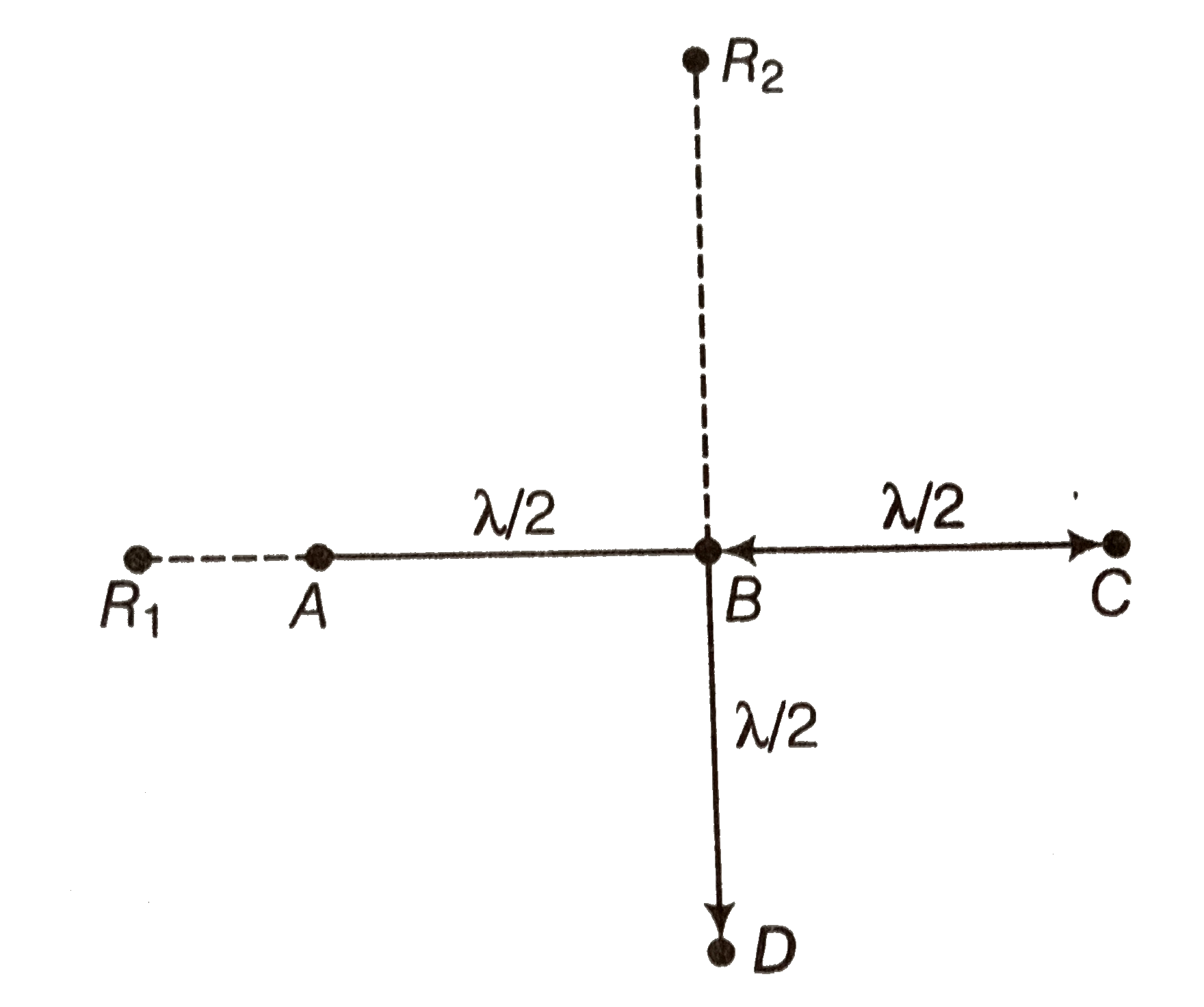In question number 3, which of the two receivers picks up the larger signal when D is turned off?
R1
R2
R1 and R2
None of these.
The correct Answer is:B
If D is switched off.
R1 picks up y=a coswt
∴<IR1>=12a2
R2 picks up y=3a coswt
∴<IR2>=92a2
Thus R2 picks up larger signal compared to R1.
Topper's Solved these Questions
- WAVE OPTICSBOOK - NCERT FINGERTIPSCHAPTER - WAVE OPTICSEXERCISE - NCERT Exemplar
5 Videos
- WAVE OPTICSBOOK - NCERT FINGERTIPSCHAPTER - WAVE OPTICSEXERCISE - Assertion And Reason
15 Videos
- WAVE OPTICSBOOK - NCERT FINGERTIPSCHAPTER - WAVE OPTICSEXERCISE - Polarisation
18 Videos
- SEMICONDUCTOR ELECTRONICS : MATERIALS , DEVICES AND SIMPLE CIRCUITS BOOK - NCERT FINGERTIPSCHAPTER - SEMICONDUCTOR ELECTRONICS : MATERIALS , DEVICES AND SIMPLE CIRCUITS EXERCISE - Assertion And Reason
15 Videos
Similar Questions
Four identical monochromatic sources A,B,C,D as shown in the (figure) produce waves of the same wavelength λ and are coherent. Two receiver R1 and R2 are at great but equal distances from B.
(i) Which of the two receivers picks up the larger signal when B is turned off?
(iii) Which of the two receivers picks up the larger singnal when D is turned off ?
(iv) Which of the two receivers can distinguish which of the sources B or D has been turned off ?

View SolutionWhich of the two is larger : 312 or 66?
View Solution
Knowledge Check
In question number 3, which of the two receivers picks up the larger signal when B is turned off?
AR1BR2CR1 and R2DNone of these.In question number 3, which of the two receivers picks up the larger signal when B is turned off?
AR1BR2CR1 and R2DNone of these.Four identical monochromatic sources A,B,C,D as shown in the (figure) produce waves of the same wavelength λ and are coherent. Two receiver R1 and R2 are at great but equal distances from B.
(i) Which of the two receivers picks up the larger signal when B is turned off?
(iii) Which of the two receivers picks up the larger singnal when D is turned off ?
(iv) Which of the two receivers can distinguish which of the sources B or D has been turned off ?
 AR1BR2CR1 and R2DNone of these.
AR1BR2CR1 and R2DNone of these.
Demodulation is the reverse process of modulation, which is performed in a receiver to recover the original modulating signals. At the receiving end, the signals are generally weak due to attenuation in the channel. The receiver selects only the desired signal, rejecting the unwanted (noise) signals and amplifies the same.
Read the above passage and answer the following questions:
(i) What are the main functions of a demodulator?
(ii) Give any two examples of demodulators.
(iii) What does the phenomemom of demodulation imply in day to day life?
View SolutionTwo numbers are in the ratio 3:5 and their sum is 96. The larger number is
View SolutionWhich contents are lost when the computer turn off?
View SolutionThe probability that the sum of the square of the two numbers, which show up when two fair dice are thrown, is even is
View SolutionTwo numbers are ratio of 3:4 and LCM is 84. Which is the larger number of these two numbers ?
View Solution
